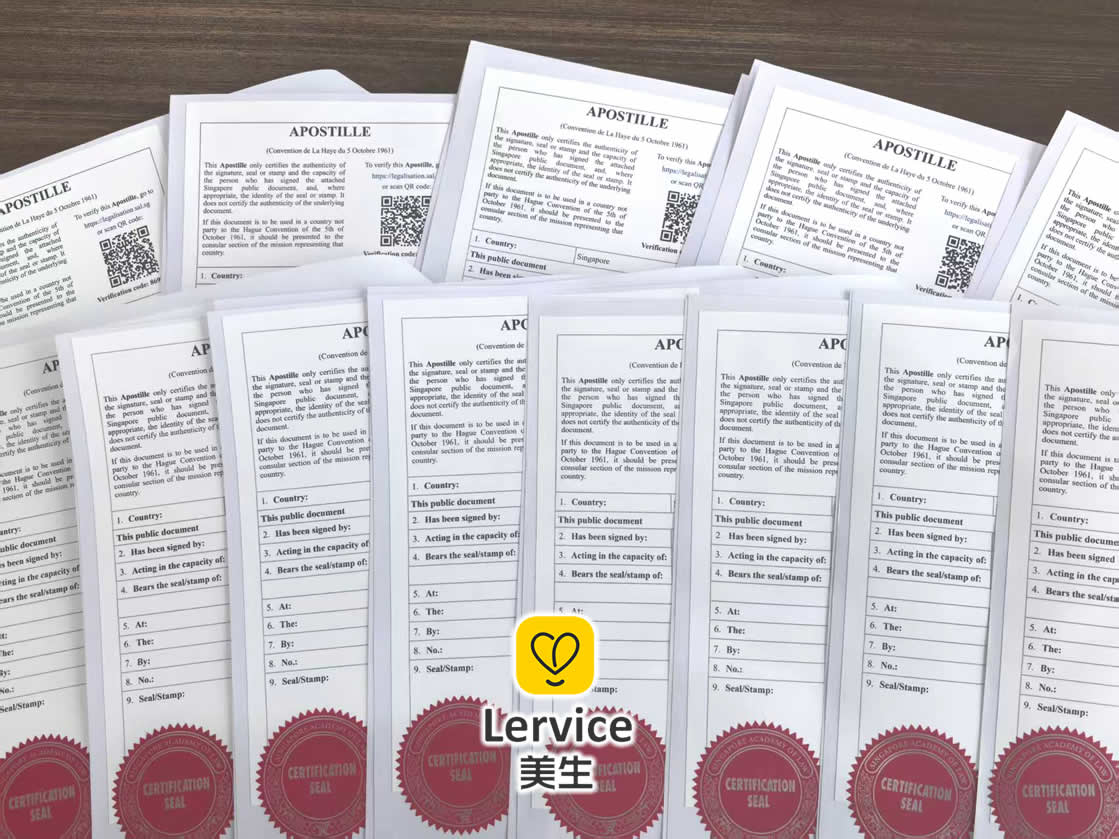1. What is an Apostille?
An Apostille is a certification issued by a country that is a signatory to the Hague Convention, verifying the authenticity of documents. Apostilles have a standardized format to allow foreign institutions to quickly validate documents. Over 100 countries are members of the Hague Convention, so documents with an Apostille can be used directly in these countries.
2. What is Embassy or Consular Attestation?
Countries that are not part of the Hague Convention cannot verify documents via Apostille. For such countries (e.g., Vietnam, UAE, Egypt), documents must be sent to the local embassy for consular attestation.
3. Which documents can be Apostilled directly?
Documents issued by the Singapore government can skip notarization and be Apostilled directly, such as birth certificates, marriage certificates, divorce judgement, passports, etc. Other non-government documents must first be notarized. If translation or multiple documents are needed, notarization is required before Apostille.
4. What is notarization?
In Singapore, notarization is done by a Notary Public authorized by the government, certifying the authenticity of documents, statements, or signatures. Common notarized documents include powers of attorney, board resolutions, and declarations.
Singapore's Notary Public are qualified lawyers. To prevent unauthorized notarization, Singapore requires all notarized documents to undergo legal certification by the Singapore Academy of Law (SAL). Legal certification and Apostille are combined, so notarized documents must be both legally certified and Apostilled to be valid in over 100 Hague Convention countries.
5. Are originals required for Apostille?
Yes. Government-issued documents like birth or marriage certificates must be originals for certification. If originals are not available, a lawyer can assist with notarization before Apostille. Newer electronic certificates with QR codes are treated as originals.
6. Can multiple documents be Apostilled together?
No. Each document requires a separate Apostille. If combining is needed, first notarize, then Apostille, especially when the documents include both government and private documents like powers of attorney.
7. Can translated documents be Apostilled?
No. Apostille only certifies the original document, not translations. Options: 1) Apostille the original first, then translate the certified document; 2) Notarize original + translation together, then Apostille.
8. How to verify an Apostille?
Apostille stickers have a QR code. Scan the QR code and enter the certificate number and verification code to confirm authenticity.
9. What is the validity of an Apostille?
Apostilles do not have a fixed validity. Institutions typically require certificates issued within a certain period, commonly 6 months to 1 year.
